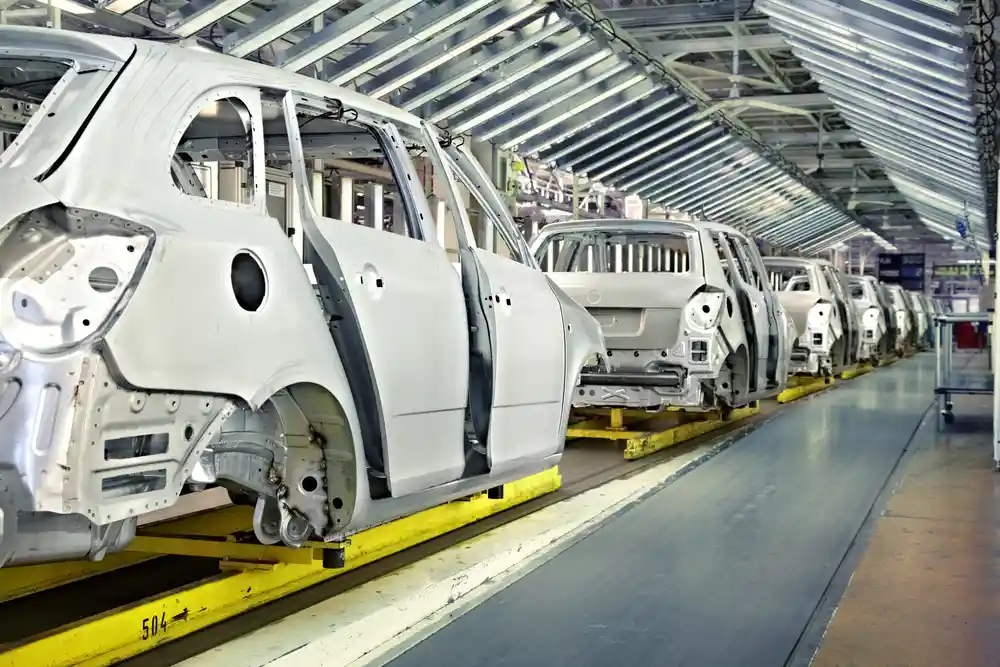Interested in Automobile Engineering? Here are a few things about it you should know

We all have a skeletal understanding of what automobile engineering is all about. In the simplest terms, automobile engineering is about the study and development of automobiles. This, even as a statement, glosses over the remarkable amount of knowledge and skills necessary to understand, experiment, and create automobiles. Yes, your cars get produced in mechanized factories but the operations are controlled by a web of human brains. Hence, as an automobile engineer, you are required to have a deep and intricate appreciation of automobiles and the science and engineering behind them.
The introductory discussion says too little about what makes a person an automobile engineer. If you are reading this article and are currently studying or planning to study automobile engineering, you should hold on a little longer. I will be discussing briefly the various things you need to know for the same.
-
Of course, formal education
Before you jump to conclusions, I would like to clarify that I do not mean to say that learning about automobiles necessarily requires formal education. However, the point is, formal education offers you an institutionalized platform to approach the discipline in a systematic manner and under the guidance of able instructors. Moreover, it helps you to get into the job market. Secure admission to an accredited university or college with good coursework on the subject including apprenticeship programs.
-
You will need technical skills
For the most obvious reasons, you will have to hone your technical skills. During lectures, you will be introduced to the theoretical framework of the discipline but are expected to implement them in real-life situations. For that, you must be placed under expert supervision. Apply for good internship programs, participate in lab work actively, and engage in projects to develop and sharpen your skills. You should be good with machinery, computers, and theory. Only then, you can effectively work as an automobile engineer.
-
Communication abilities
During education and afterward, your communication skills will play a key role in addressing various aspects of your professional life. Even throughout your time at university, you will be placed in projects where teamwork will be paramount. From making presentations, writing reports to addressing the team on the various facets of the project, you should be well-versed with the argot and knowledge on the matter. Automobile engineering envisages group efforts, and group efforts are only realized in presence of fluid communication.
-
Analytical and problem-solving temperament
Without a doubt, you must be able to exhibit analytical and problem-solving skills to become a capable automobile engineer. A good university program will offer you ample opportunities to test your cognitive framework and allow you to experiment with problems. As an automobile engineer, you are expected to detect and solve issues such as those in the manufacturing process so that solutions can be offered in a timely fashion. All of these skills will improve only upon indulgence in fieldwork. So, take up as many projects as you can throughout your education period. Mere reliance on theory will not be of much use because the theory is only the foundation and its functions differ depending on the issue at hand.
-
Consider specializations
In order to draw a better career map, you should try to upgrade your academic goals. Generally, students complete their undergraduate degree programs and start working. While you don’t necessarily need to pursue any further education, it is anyway advised that you should consider it.
After having worked for some time, you will most likely develop a definite interest in a particular sub-field in automobile engineering. In case you have reached this stage, you should strongly consider pursuing a specialization course in the same. Some options include specialization in aerodynamics, emissions control, rapid prototyping, vehicle safety, fluid mechanics, and fuel technology.
In addition to this, you may want to pursue certification courses. The Society for Automotive Engineers (SAE) offers many certificate programs that can greatly boost your resume. It offers certificate courses on Accident Reconstruction, Diesel Technology Certificate, SI Engine, and Vehicle Dynamics Certificate. So, you can pursue many other certificate courses on other platforms that can get your brownie points.
Bring the best of the CEOWORLD magazine's global journalism to audiences in the United States and around the world. - Add CEOWORLD magazine to your Google News feed.
Follow CEOWORLD magazine headlines on: Google News, LinkedIn, Twitter, and Facebook.
Copyright 2025 The CEOWORLD magazine. All rights reserved. This material (and any extract from it) must not be copied, redistributed or placed on any website, without CEOWORLD magazine' prior written consent. For media queries, please contact: info@ceoworld.biz











